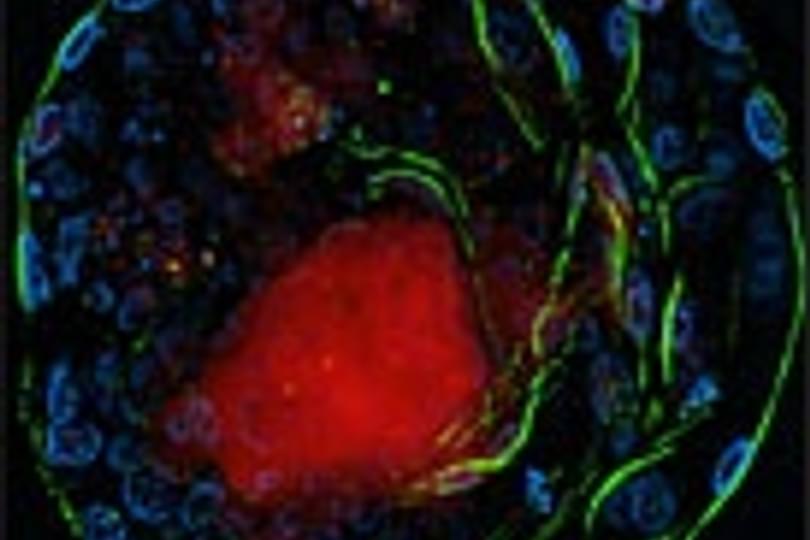
The Oxford Stem Cell Institute (OSCI) is to play a major role in StemBANCC, a €50m project which uses stem cells to develop new treatments for complex conditions like Alzheimer’s, autism and schizophrenia.
“The aim of the project is to generate human induced pluripotent stem cell lines from 500 patients with a range of diseases including diabetes and dementia, and that will be used to understand disease at a cellular level and to develop drug screening platforms,” said Dr Sally Cowley who heads the James Martin Stem Cell Facility, a laboratory within OSCI.
Most adult cells can only divide to produce other cells of the same type – for example, skin cells can only make other skin cells, and blood cells can only make other blood cells. Only embryonic stem cells are ‘pluripotent’, i.e. able to give rise to all the different kinds of cell that make up the human body.
In recent years researchers have developed a way of reprogramming ordinary adult cells to create so-called induced pluripotent stem (iPS) cells. Like embryonic stem cells, iPS cells are able to generate any kind of cell; as such, they offer researchers a good supply of different kinds of human cell that can be used in research and drug development.
Currently, many drugs fail rather late in the drug development process because the tests used in the earlier stages of drug development simply do not reflect what happens in real life when the drug is administered in patients.
This is partly because these early tests rely heavily on animal cells, and when human cells are used, they have often been extensively modified to survive in culture and so no longer behave naturally.
Those working in drug research and development therefore urgently need a good supply of cells that more accurately mimic what happens in the human body.
The research that resulted in the creation of the first induced pluripotent stem cells was a significant breakthrough which won the scientists behind it - John Gurdon and Shinya Yamanaka - this year's Nobel Prize for Medicine.
The aim of the STEMBANCC project is to generate and characterise 1 500 high quality human induced pluripotent stem (iPS) cell lines that can be used by researchers to study a range of diseases, including diabetes and dementia, and test for drug efficacy and safety. The cell lines will help to improve and speed up the drug development process, and ensure that patients benefit from more effective and safer drugs.
The project is a public-private partnership backed by the European Union's Innovation Medicines Initiative and is half funded by the drug industry and half by the EU.
Further information about the project
About the Oxford Stem Cell Institute
Read Financial Times coverage of this story: UK to lead stem cell research project